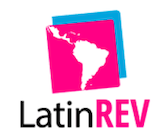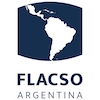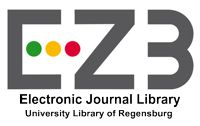Sense of the vocational training process of the student with lower extremity prosthetic system
##plugins.themes.bootstrap3.article.main##
When inclusive education is addressed in the training process, one must go beyond just thinking about including the person, since one must reflect on all those curricular, pedagogical, didactic, and evaluative actions according to the needs of the student. Now, when it comes to the educational needs within the didactics of the physical education and sports program, without a doubt, the limitations and scope of the student to carry out the respective practices must also be considered. With the intention of innovating and contributing to inclusive educational systems at a professional level, a theoretical-practical article is presented based on inclusive education processes experienced during the training of the student with a lower extremity prosthetic system assigned to the physical education and sports program of the Quindío’s University. To do this, a qualitative research and hermeneutic method is presented; where the narration written in life stories, the interview, semi-structured in depth, applied to teachers as classmates, allowed to analyze, understand, and interpret the emerging categories that weave together the representation woven during the training process. As a final product, the meaning of the representation that the student with a prosthetic system wove during the training process is revealed, as well as recommendations to make the Universities, inclusive institutions more committed to the needs of society.
Downloads
##plugins.themes.bootstrap3.article.details##
Cordero, M. (2012). Historias de vida: Una metodología de investigación cualitativa. Universidad de Puerto Rico, 50- 56. [Archivo PDF] https://www.uv.mx/psicologia/files/2017/12/historias_de_vida_una_metodologia_de_investigacion_cualitativa.pdf
Declaración de Helsinki. Principios éticos para las investigaciones con seres humanos. 59ª Asamblea General, Seúl, Corea, octubre de 2008 [en línea]. Disponible en: http://www.wma.net/ es/30publications/10policies/b3/index. [Fecha de consulta: 20 de mayo de 2011].
De Educación, L. G. (1994). Congreso de la República de Colombia. Bogotá. Recuperado de http://www. secretariasenado. gov. co/senado/basedoc/ley_0115_1994. html.
Duque, J. V. (2018). Aportaciones metodológicas para el diseño y fabricación de dispositivos protésicos: aplicación en prótesis de miembro inferior. Universidad del Norte, 19-39. [Archivo PDF] file:///C:/Users/14-af117la/Downloads/133198.pdf
Gallego Murillo, L. M. (2020). Sentidos de la educación inclusiva en la formación de los licenciados. Revista Paca, (10), pp. 155-174. https://doi.org/10.25054/2027257X.2884
Galli, K. (2017). Ortesis y prótesis. Monografía Auditoria médica, pp. 1-11.
Heidegger, M. (2002). El ser y el tiempo. México: Fondo de Cultura Económica.
Hernández, G. D. (2021). Representación Social: proceso de formación del estudiante con sistema protésico de extremidad inferior desde las didácticas del Programa de Educación Física y Deportes de la Universidad del Quindío. (Tesis de Grado, Universidad del Quindío.) Repositorio de la Universidad del Quindío.
Hernández, R. (2007). Fundamentos de la Metodología de la Investigación. España: McGraw Hill.
Hernández et al. (2007). Metodología de la Investigación. México: McGraw Hill
López Rupérez, F., Expósito Casas, E. y García García, I. (2019). Igualdad de oportunidades e inclusión educativa en España. Relieve 25 (2).https://ojs.uv.es/index.php/RELIEVE/article/view/14351
Materán, A. (2008). Las representaciones sociales: un referente teórico para la investigación educativa. Universidad de los Andes, Venezuela, pp. 243-248. [Archivo PDF] https://www.redalyc.org/pdf/360/36021230010.pdf
Moscovici, S. (1967). Communication processes and the properties of language. Advances in experimental social psychology, 3, pp. 225-270.
Mundial, B. (2011). Informe mundial sobre la discapacidad 2011.
Raiter, A. (2002). Representaciones sociales. Editorial Universitaria de Buenos Aires.
Ricoeur, P. (2003). Teoría de la Interpretación: Discurso y Excedente de Sentido. Argentina: Siglo XXI.
Rodríguez, C. A. C. (2018). Gamificación en educación superior: experiencia innovadora para motivar estudiantes y dinamizar contenidos en el aula. Edutec. Revista Electrónica de Tecnología Educativa, (63), pp. 29-41.
Rodríguez, G., Gil, J., & García, E. (1996). Tradición y enfoques en la investigación cualitativa. Metodología de la investigación cualitativa, 14.
Sosa, L. (2009). Educación Física y discapacidad. Riberdis, pp. 7-14. [Archivo PDF] http://riberdis.cedd.net/handle/11181/4002
UNESCO. (2005). Orientaciones para la Inclusión: Asegurar el Acceso a la Educación para Todos. París: UNESCO.
































